The electric vehicle (EV) charging industry is known for its reliance on a multitude of engineering processes and technologies, resulting in a host of unique terms and definitions.
If you're not well-versed in the technicalities of this fast-growing sector, you might be surprised by just how many specific jargon words and phrases are used. A deeper understanding of these terms is key to comprehending the EV charging industry and keeping up with its rapid development.
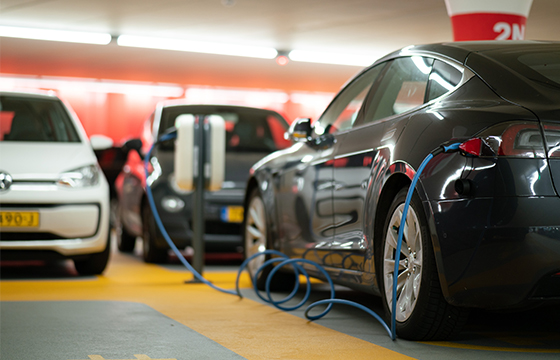
Electric vehicle (EV): Any vehicle powered by an electric motor. See subtypes (BEV, HEV, PHEV).
Battery electric vehicle (BEV): An electric vehicle that runs solely on battery power. The batteries can be recharged through regenerative braking or plugging into a compatible electrical source (charging station).
Hybrid electric vehicle (HEV): A vehicle powered by an efficient combination of a self-charging electric motor and an internal combustion engine (ICE). The electric motor starts the car, powers it for a short distance, and then switches to the ICE.
Plug-in hybrid electric vehicle (PHEV): An HEV with an electric motor that is recharged by plugging into a compatible electrical source (charging station). PHEV batteries do not recharge through regenerative braking.
Battery: Where the EV's power is stored; the equivalent of an ICE-powered vehicle’s gas tank. EV batteries contain multiple cells and modules that determine their total storage capacity.
Motor: The motor in an EV converts electricity into mechanical power. It does this by running a current through wound copper wire circuits that create a rotating magnetic field. This moves a rotor that drives axle rotation and the EV’s wheels.
Zero-emission vehicle (ZEV): Any vehicle that produces no emissions during operation. A prime example is the BEV.
Kilowatt-hours (kWh): A measurement of the power of one kilowatt (1,000 watts) maintained for one hour, used to determine the total power potential of a battery.
Alternating current (AC): The electrical standard used in homes and by the power grid. It allows long runs of cable with less power loss.
Direct current (DC): The electrical standard used in most electronics and EVs. EVs convert AC power to DC power in the process of charging.
Learn more about: the differences between AC and DC charger
On-board charger (OBC): On-board chargers convert alternating current (AC) to direct current (DC) to charge an EV’s batteries. Level 3 (fast-charging) stations don’t need an OBC since they already provide direct current.
Electric vehicle supply equipment (EVSE): Everything needed to charge an EV, including connectors, cables, and charging points. EVSE includes safeguards to avoid overcharging.
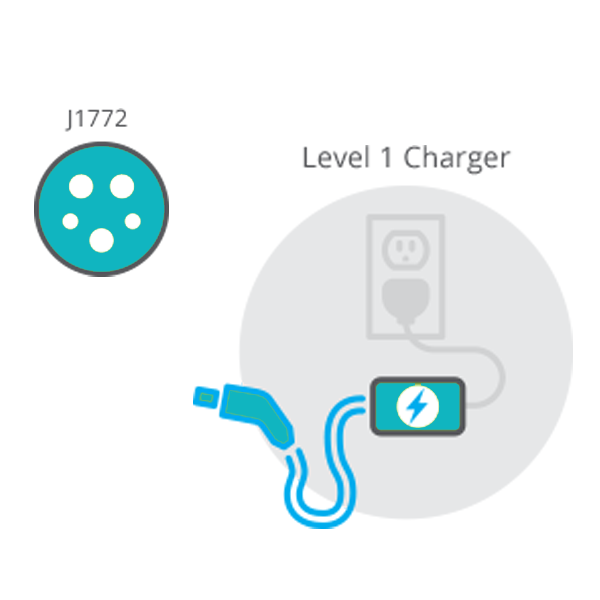
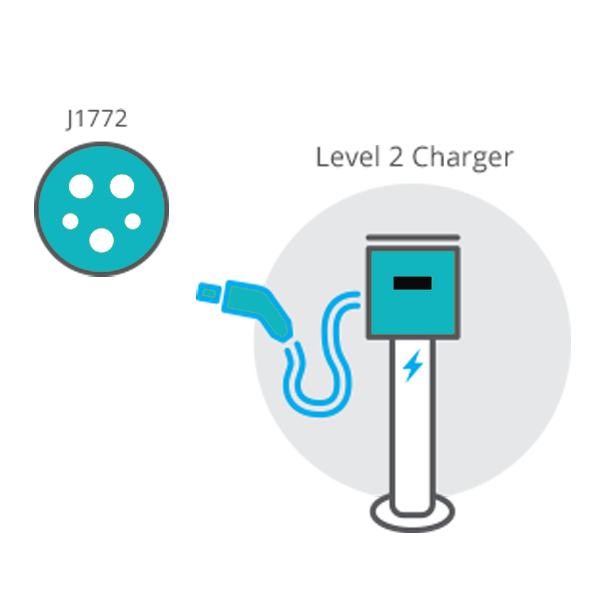
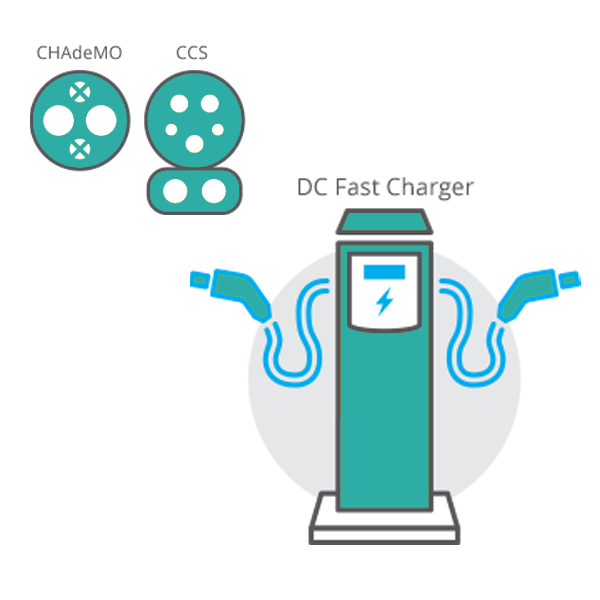
Level 1 charging: The charge is available from a standard household outlet, including 120V output and between 8 and 20 amps. Level 1 can take up to 24 hours to charge an empty EV battery.
Level 2 charging: Most charge points are Level 2, including 240V output and up to 80 amps. A full charge of an empty battery takes about 4 to 6 hours.
Level 3 charging: Also referred to as Fast Charging, these charging points use DC to charge empty batteries in as fast as 30 minutes. Level 3 charging goes up to 1000V and over 100 amps( Grasen Ultra-fast DC series goes up to 400A).
Single-phase charging: A connector that draws power through a single cable. Three-phase charging, required for Level 3 charging, draws power through three cables.
Type 1 plug: The most common EV connector in the U.S., charging up to 7kW using a five-pin plug known as an SAE-J1772 or “J plug.”
Type 2 plug: A triple-phase plug charging up to 22kW (home) or 43kW (public).
Combined charging system (CCS): Among the most common EV plugs, a CCS1/CCS2 connector charges up to 420kW and includes DC charging pins and a type 1 / type 2 plug.
CHAdeMO: A four-pin DC connector that charges up to 100 kW.
Open Charge Point Interface (OCPI): Managed by the EVRoaming Foundation, the OCPI allows EV owners to roam between charging networks.
Open Charge Point Protocol (OCPP): The standard charging stations are used to communicate with their operators. Which has been a necessary condition required by many countries. (Grasen EV chargers are fully compatible with OCPP 1.6J and OCPP 2.0.1)
Open Smart Charging Protocol (OCSP): The OCSP communicates between charging points and energy management systems to predict capacity.
Charge point operator (CPO): Entities that operate a network of charging points, coordinating with the site owners, managing installation and maintenance, and ensuring operations with utilities go smoothly.
Charge point installer (CPI): Sells and maintains charging points made by multiple manufacturers.
Electric vehicle service provider (EVSP): Manages charging point back-end software and communications.
Electro-mobility Service Provider (eMSP): Provides a large pool of charging points in a specific geographic area for EV drivers, including location directories, driver accounts, payment capabilities, and more.
Charge Point Management System (CPMS) or Charging Station Management System(CSMS): Software that manages and optimizes the EV charging process, including operations, payment, driver apps, dynamic load management, EV roaming, and more.
Roaming for EV charging: Allows EV drivers to charge their vehicles on different charging networks using a single recordkeeping and payment account.
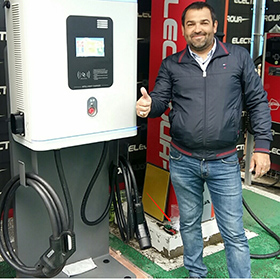
-- Marcus Groll,A Charging Station Owner in UKRAINE
Start your EV charging station businesses with Grasen. For a no-obligation quote, hit the button below, fill in your details, and we’ll get back to you.
